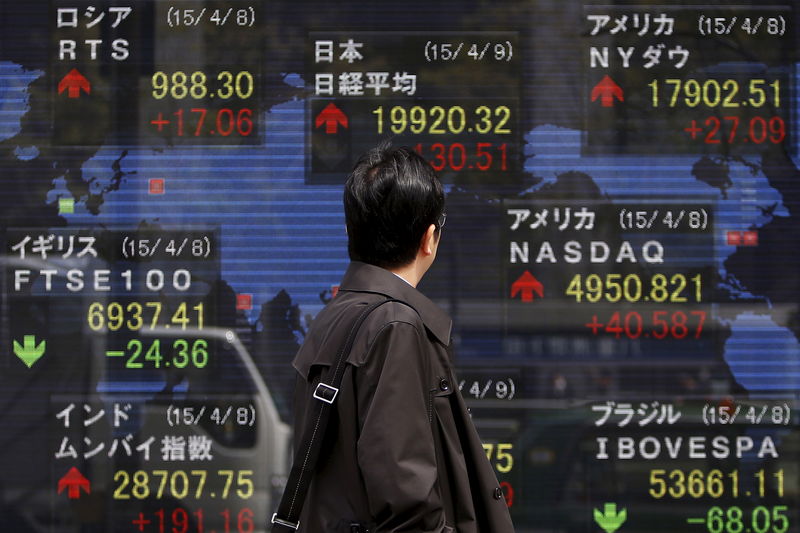This post was originally published on this site
https://i-invdn-com.akamaized.net/news/LYNXMPEB380HB_M.jpg
Investing.com – Asia Pacific stocks were mostly up on Wednesday morning, after U.S. shares set a fresh record after U.S. stimulus hopes overrode concerns about ever-rising COVID-19 cases globally.
The number of global COVID-19 cases passed the 68.1 million mark, with the number of U.S. cases passing the 15.1 million mark, as of Dec. 9, according to Johns Hopkins University data.
China’s Shanghai Composite edged down 0.12% by 11:06 PM ET (3:06 AM GMT) while the Shenzhen Component was down 0.55%. Data released earlier in the day showed that November’s consumer price index (CPI), came in below expectations, contracting 0.6% month-on-month and 0.5% year-on-year. This was the first decline in Chinese consumer prices seen since 2009.
The producer price index (PPI) contracted 1.5% year-on-year.
Hong Kong’s Hang Seng rose 1.21%. A new law will enable authorities to lock down parts of the city hit by COVID-19 for up to seven days. Restriction measures in the city have also been tightened further, with restaurants to stop dine-in services from 6pm onwards and gyms as well as beauty parlors ordered closed from Thursday as 100 new daily COVID-19 cases were recorded on Tuesday.
Japan’s Nikkei 225 gained 1.09% and South Korea’s KOSPI jumped 1.25%
In Australia, the S&P/ASX 200 gained 0.66%. December’s Westpac Consumer Sentiment, released earlier in the day, saw its highest growth in a decade as it jumped to 4.1% against November’s 2.5% jump.
Treasury Secretary Steven Mnuchin tweeted on Tuesday that he presented a fresh $916 billion COVID-19 relief measures package to House of Representatives Speaker Nancy Pelosi. The price tag is slightly higher than that for a $908 billion package proposed by a bipartisan group of lawmakers during the previous week.
Senate Majority Leader Mitch McConnell also suggested setting aside some issues that have been roadblocks to passing the measures, which was viewed by some investors as a strategic retreat aimed at striking a deal.
Congress is working against the clock, with only two days left until a Dec. 11 deadline to avoid a government shutdown. The latest developments increased hopes that Republicans and Democrats will reach a consensus ahead of the deadline, even as Democrats oppose McConnell’s insistence on protecting employers from lawsuits. McConnell for his part has criticized Democrats’ demands for assistance to state and local authorities, which he views as a bailout.
The opportunities are “in equities and credit, so we are overweight, we are risk on … we know that we will be tested again next year in terms of COVID-19 and elsewhere,” State Street (NYSE:STT) Global Advisors Global Chief Investment Officer Richard Lacaille told Bloomberg.
On the central bank front, the European Central Bank (ECB) and the Federal Reserve will both hand down their final policy decisions for 2020 on Thursday. The ECB is widely expected to announce an increase and extension to its COVID-19 bond-buying program.
The U.S. Food and Drug Administration (FDA) will convene to discuss BNT162b2, the COVID-19 vaccine co-developed by Pfizer (NYSE:PFE) and BioNTech SE (F:22UAy), on Thursday. Should the FDA grant emergency use authorization during its meeting, Health & Human Services Secretary Alex Azar has said distribution could begin within 24 hours.
The U.K. has already seen the first patients inoculated after the U.K.’s Medicines & Healthcare Products Regulatory Agency granted a temporary authorization for emergency use during the previous week.

